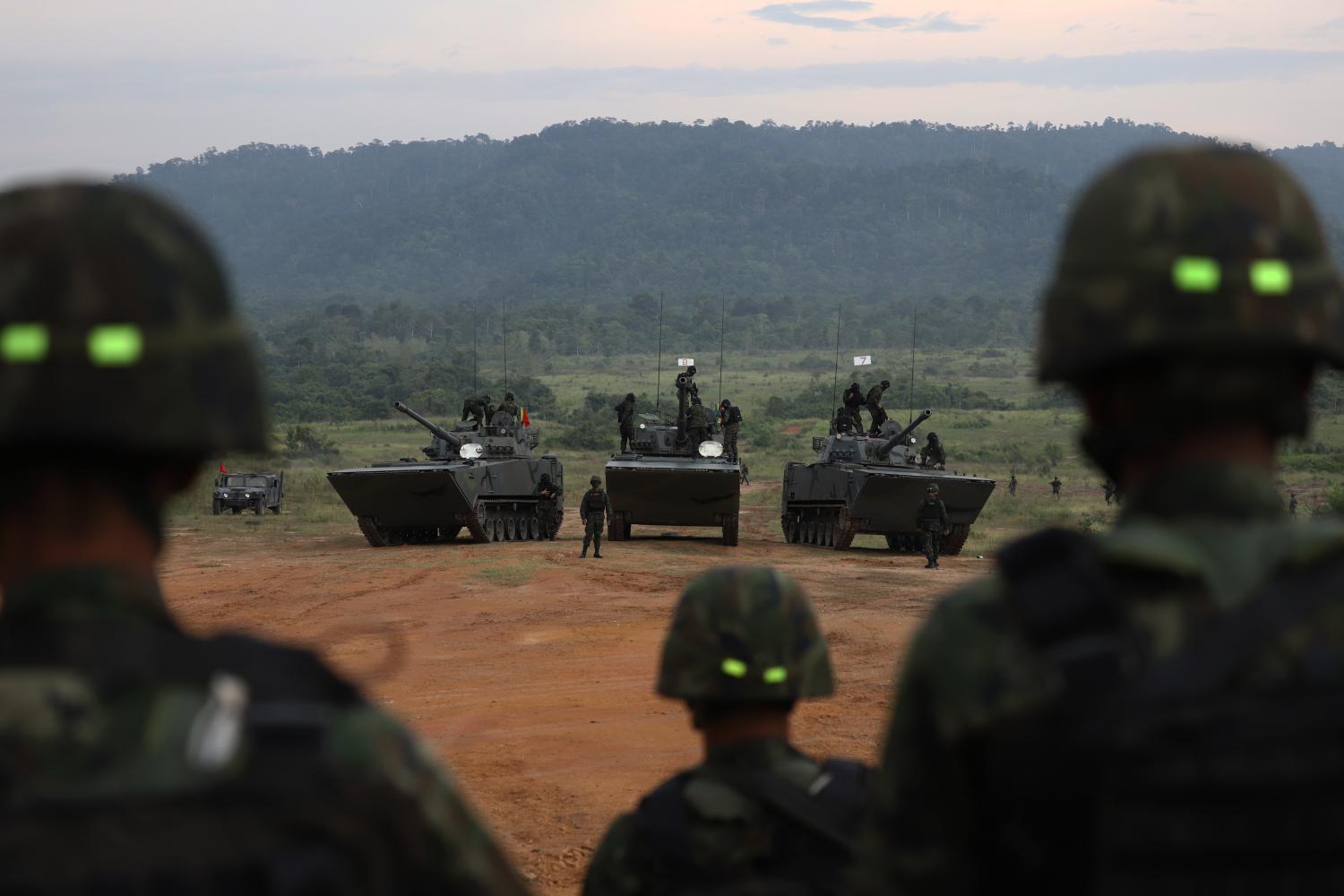
Academics and human rights defenders have expressed mixed responses to calls to scrap compulsory military service, which is gaining national attention in the lead-up to the May 14 polls.
The Move Forward Party and the Pheu Thai Party have pledged to end it in favour of voluntary enlistment if they take office as part of the next government.
They suggested the Defence Ministry lower the number of young men they need under the system. Thai men aged 21 can be drafted into military service for up to two years.
People have started to have negative thoughts towards military conscription amid reports of violence in military camps, poor food quality, and improper use of their labour, they say.
Voluntary system
Panitan Wattanayagorn, an independent academic and security expert, told the Bangkok Post the army has conducted a study on the voluntary military system which has been put in place in some areas.
However, the cost of training one soldier under this system is pricier than the conscription model, Mr Panitan said.

Panitan: Training officers is pricey
Conscription also has advantages as those conscripted can be trained and learn self-discipline and serve the country.
For these reasons, the army has not considered entirely changing from conscription to a voluntary system, while some volunteers' qualifications may not even meet criteria, he said.
"Actually, we should make use of both systems. Remote areas which are home to many elderly or vulnerable groups and with fewer people interested in the army may be suitable for conscription.
"Apart from that, the younger generation are not interested in joining the military unless they can earn a high salary and have proper welfare,'' Mr Panitan said.
Future changes may take the form of a hybrid system, which may help draw attention from people in the city as they apply to experience work in a military hospital or military enterprise, as well as the prospect of promotion as part of a military career.
Regarding proposals to downsize the military, the former lecturer from Chulalongkorn University's political sciences faculty said this took place under the Chuan Leekpai government in the 1990s as he ordered a cap on the armed forces at 80,000 and that the number of generals be limited to 1,000 in the wake of the economic recession at that time. The order was later cancelled by former prime minister Chavalit Yongchaiyudh, he said.
Asked about hazing and abuse of conscripts, and violence in military camps, he suggested the army hire outsource companies with security clearance to perform domestic services for officers instead of conscripts.
The army may consider hiring housekeepers for military residences to prevent conscripts being pressed into service, he said. In addition, the army should tighten discipline to prevent violence in camps, which can affect the army's reputation, he said.
Girding for change
Wanwichit Boonprong, a political scientist at Rangsit University, said the army should prepare itself for challenges ahead.
The army has initiated a voluntary military system over the past two years. The feedback gets better each year due to improvements in pay and welfare.

Wanwichit: Challenges ahead
"Most people have no clue what the army has been doing these days due to its limited public relations. I believe the army is aware of the debate over compulsory military service but it is difficult to scrap the conscription system entirely,'' said Mr Wanwichit.
"The number of those conscripted may gradually decline as it will lower costs, and those savings can be used to fund development of military technology.''
The army, he said, should provide special training for conscripts to tackle various security problems such as disaster relief, wildfire suppression and evacuation operations.
"Procuring equipment to help mitigate a disaster will also help boost the army's credibility rather than just procuring weapons,'' he said.
Mr Wanwichit said the army has intensified camp inspections to prevent corruption and improve the quality of the food. The army had also improved its welfare system and camp amenties.
Out of date?
Cross Cultural Foundation director and human rights activist Pornpen Khongkachonkiet said compulsory enlistment is now considered old-fashioned. She said the system should be scrapped as the country fights no wars and has no need to recruit men to fight its enemies.
Forcing people to serve the county is expensive. In her view, the Enlistment Act should be amended to turn the conscription system into a voluntary enterprise to recruit those who have the proper qualifications and genuine interest in joining the army.

Pornpen: Out of date?
Ms Pornpen also addressed exploitation of labour among conscripts, regarded by some as servant soldiers. She agreed the army should hire people from outside the barracks to perform domestic labour for officers.
"Thai men are conscripted and must sacrifice their early careers or the opportunity to spend time with their families to serve the nation," said Ms Pornpen.
Regarding violence against conscripts, she said: "It is hard to proceed with civil and criminal cases against offenders as they tend to seek reconciliation and provide compensation to the victim's family,'' she said.
She hopes the Prevention and Suppression of Torture and Enforced Disappearances Act will help encourage witnesses to file complaints.
Human rights
Meanwhile, Supensri Phengkoksoong, director of Social Equality Promotion Foundation, said party promises to scrap compulsory military conscription may be a reflection of popular demand.

Supensri: Popular demand
Ms Supensri also urged the military to treat transsexual women fairly when they arrive at the screening unit for conscription. They should not force them to take off their shirts in front of others as they have a "woman's heart".
The demand for reform in the army is not just about money, but also concerns transparency and credibility, she said.
This article is the last of a series of the two stories about politics and military conscription.
